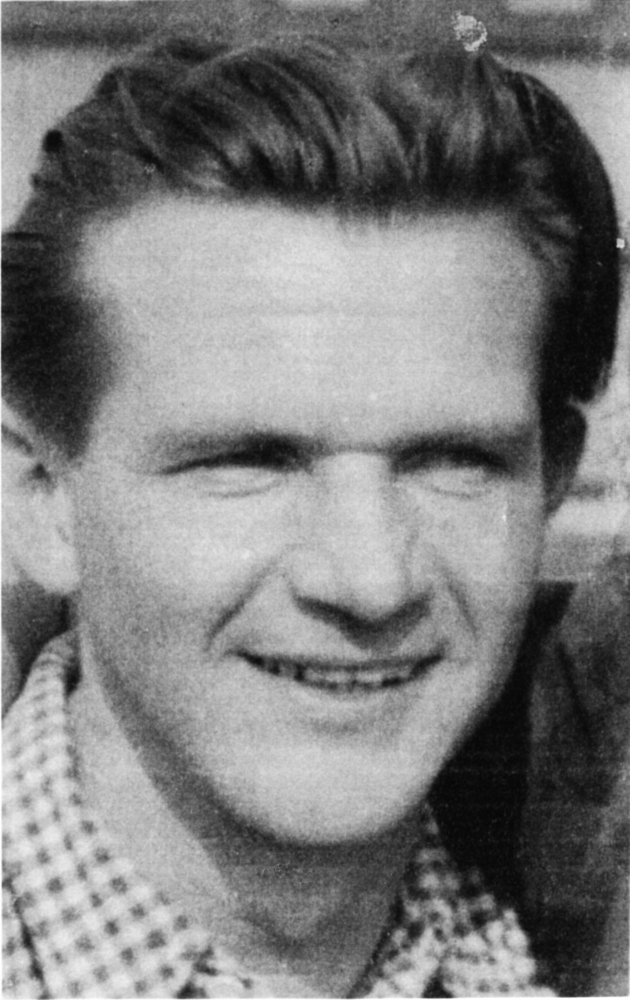Franz Scheider wuchs in einer Arbeiterfamilie in der Schwabinger Belgradstraße auf, lernte Maschinenschlosser und bildete sich zum Maschinenbauingenieur weiter. Seine Freizeit verbrachte er in der sozialistisch orientierten Naturfreundejugend und in der Freien Turnerschaft. Bereits früh begann er sich auch politisch zu engagieren, im gewerkschaftlichen Metallarbeiterverband, dann mit 16 Jahren im Kommunistischen Jugendverband (KJVD) und wenig später in der Kampfgemeinschaft für Rote Sport-Einheit, in dessen südbayerischer Leitung er 1932 mitarbeitete.
Von der großen Verhaftungswelle im Frühjahr 1933 blieben die weniger bekannten Jungkommunist*innen zunächst noch meist verschont. Deshalb beteiligten sich viele von ihnen an illegaler Aufklärungsarbeit gegen das NS-Regime. Auch Franz Scheider half mit bei der Herstellung und Verteilung von Flugschriften. Einer ersten Verhaftung konnte er sich im Juli 1933 noch durch Flucht aus der Wohnung seiner Eltern entziehen. Als er zusammen mit Genossen in einer illegalen Druckerei in der Obersendlinger Rottenbucher Straße gerade über 1000 Exemplare der KPD-Zeitung Neue Zeitung fertiggestellt hatte, wurde er am Abend des 18.8. verhaftet, im Polizeipräsidium verhört und anschließend ins KZ Dachau eingeliefert. Das Oberlandesgericht München verurteilte ihn - zusammen mit sieben weiteren Angeklagten - am 15.5.1934 wegen „Vorbereitung eines hochverräterischen Unternehmens“ zu zwei Jahren und drei Monaten Zuchthaus, die er in Amberg und Straubing verbüßte. Nach seiner Haftentlassung im Mai 1936 arbeitete er als Heizungsmonteur und heiratete im Dezember 1939 die Damenschneiderin Dorothea Ettmeier; beide kannten sich aus dem ‚Arbeitersport‘ und dem Kommunistischen Jugendverband.
Obwohl ‚wehrunwürdig‘ aufgrund seiner früheren Verurteilung wurde er am 1.12.1942, kurz nach der Geburt der Tochter Christine, zur berüchtigten Bewährungs- bzw. Strafdivision 999 eingezogen. Scheider wurde auf dem Peloponnes in Griechenland bei der Bekämpfung von Partisanen eingesetzt und dabei möglicherweise auch Zeuge von Vergeltungsmaßnahmen gegen Zivilisten. Er nahm Kontakt mit Gleichgesinnten auf mit dem Ziel, bei nächster Gelegenheit die Offiziere zu entwaffnen und möglichst viele Kameraden zum Überlaufen zu bewegen. Scheider wurde denunziert, vom Feldkriegsgericht am 4.6.1944 wegen „Kriegsverrats in Tateinheit mit Zersetzung der Wehrkraft“ zum Tode verurteilt und zusammen mit fünf gleichgesinnten Kameraden bei Amalias hingerichtet.


